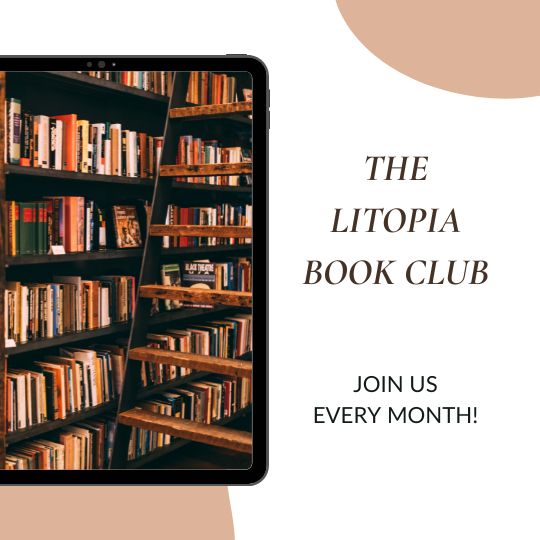Okay, guys, you have a choice: bear with me, or ignore me. I tend to be wordy, and editing takes me much longer than writing, so, well, this is what you get. But nevertheless, I think you'll perhaps find this topic interesting, and trust many of you might have more to add.
I've noticed in several of our Huddle meetings that people have very different ideas about what is meant by "literary fiction," including strong opinions that are sometimes quite negative. I get it. Frankly, I think it's a confusing subject. At least I know I have been quite confused about it, though less so now than in the past. But because I was having trouble figuring out where my novel fit in the vast and seemingly shape-shifting realm of literature genres, I did my usual thing and read a whole bunch of articles on the subject by editors, agents and authors. While doing so didn't completely cure my confusion--the whole business is like a moving target, after all--it helped.
And I think it's important. Being informed about how the different categories are constructed or perceived helps us to not only categorize our own novels but also give more appropriate feedback when doing critiques of others' work. It also helps us filter out feedback that is well-meant but doesn't quite fit our projects. When poorly informed, it's easy to be led down rabbit holes of mistaken edits and revisions.
With this in mind, I've attached one of the first posts I did on my blog MarttaKarol.com when I started it in 2014 (soon after I started writing my novel). The post is about the definition of literary fiction. (If you look at my blog, please be aware, I've hardly posted anything for several years and the site needs a huge remodel--back in 2014, I just didn't really know what to do with it [and I'd only been working on my novel for a year or two]. Now I have more, hopefully better, ideas, but too little time to apply them. Sigh. So much work to do!)
I've also included some graphic representations of the categories, which you can see at the end of the attached document. As was so with the opinions expressed in the articles I read, I don't always agree with them, and suspect you won't either.
Finally, you might also take a look at the Editor's Reviews for some novels designated a "literary" on Amazon's website. I just took a look at Hernan Diaz' new novel Trust, for example, and read through a long series of recommendation/review "blurbs" (as term is used in U.S. vs. the UK) and by the end of doing so I felt as though I'd taken a workshop in what literary fiction is. Really! Then I read the sample first pages and found them a somewhat challenging read--beautifully constructed but very dense prose and what felt like a lot of backstory--so that if I hadn't read the reviews, I'd not know how to approach the book and might put it down. Apparently there are several big and profound shifts in the book--the first, at about 100 pages--which challenge readers in fairly profound ways, and there's a reason why it won the Pulitzer and all those accolades. But I'm sure it's not for everyone. Nor should it be. That's why we have so many fiction genres to choose from!
Okay, that's it for my "food for thought" contribution.
--CarolMS
I've noticed in several of our Huddle meetings that people have very different ideas about what is meant by "literary fiction," including strong opinions that are sometimes quite negative. I get it. Frankly, I think it's a confusing subject. At least I know I have been quite confused about it, though less so now than in the past. But because I was having trouble figuring out where my novel fit in the vast and seemingly shape-shifting realm of literature genres, I did my usual thing and read a whole bunch of articles on the subject by editors, agents and authors. While doing so didn't completely cure my confusion--the whole business is like a moving target, after all--it helped.
And I think it's important. Being informed about how the different categories are constructed or perceived helps us to not only categorize our own novels but also give more appropriate feedback when doing critiques of others' work. It also helps us filter out feedback that is well-meant but doesn't quite fit our projects. When poorly informed, it's easy to be led down rabbit holes of mistaken edits and revisions.
With this in mind, I've attached one of the first posts I did on my blog MarttaKarol.com when I started it in 2014 (soon after I started writing my novel). The post is about the definition of literary fiction. (If you look at my blog, please be aware, I've hardly posted anything for several years and the site needs a huge remodel--back in 2014, I just didn't really know what to do with it [and I'd only been working on my novel for a year or two]. Now I have more, hopefully better, ideas, but too little time to apply them. Sigh. So much work to do!)
I've also included some graphic representations of the categories, which you can see at the end of the attached document. As was so with the opinions expressed in the articles I read, I don't always agree with them, and suspect you won't either.
Finally, you might also take a look at the Editor's Reviews for some novels designated a "literary" on Amazon's website. I just took a look at Hernan Diaz' new novel Trust, for example, and read through a long series of recommendation/review "blurbs" (as term is used in U.S. vs. the UK) and by the end of doing so I felt as though I'd taken a workshop in what literary fiction is. Really! Then I read the sample first pages and found them a somewhat challenging read--beautifully constructed but very dense prose and what felt like a lot of backstory--so that if I hadn't read the reviews, I'd not know how to approach the book and might put it down. Apparently there are several big and profound shifts in the book--the first, at about 100 pages--which challenge readers in fairly profound ways, and there's a reason why it won the Pulitzer and all those accolades. But I'm sure it's not for everyone. Nor should it be. That's why we have so many fiction genres to choose from!
Okay, that's it for my "food for thought" contribution.
--CarolMS



